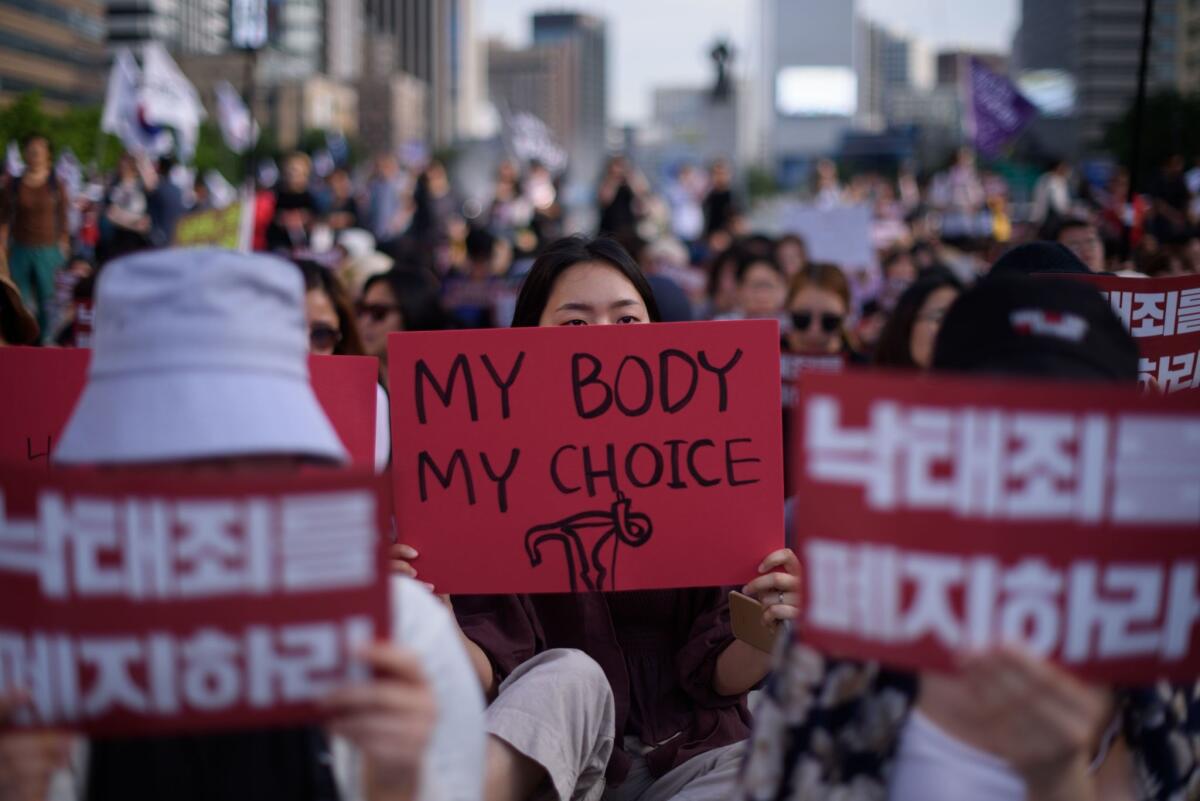South Korea’s top court may decriminalize abortion

- Share via
Reporting from Seoul — Ever since South Korea’s criminal laws were written in 1953, abortion has been illegal here — punishable by up to a year in prison for the woman, up to two years for the physician.
On Thursday, the country’s top court may change that. The constitutional court is expected to rule on a case challenging the constitutionality of the abortion ban. The developments are being closely monitored by women’s advocates and evangelical Christians alike.
The case has created a political issue out of something that, unlike in the U.S., was for decades a non-issue. The law has seldom been enforced, and abortion is widely available at most clinics. Abortions have dramatically decreased in South Korea, from about 30 women out of 1,000 undergoing the procedure in 2005 down to about 5 in 1,000 in 2017, a result of the increased availability and awareness of birth control.
Yet a newly energized feminist movement in the country is pushing for abortion to be decriminalized, saying it has endangered women’s health, saddled them with social stigma and exposed providers to criminal liability.
“It’s resulted in women seeking abortions having to travel farther at greater expense and time, and endure humiliation to get the procedure,” said Yoon Jung-won, an obstetrician-gynecologist at Green Hospital in Seoul and an activist with the Sexual and Reproductive Rights Forum. “It’s skewed the doctor-patient relationship, perceptions about patient rights and how women themselves feel about terminating their pregnancy.”
In 2017, more than 235,000 people signed a petition urging South Korean President Moon Jae-in to decriminalize abortion, saying it was unfairly penalizing the actions of the women.
“A pregnancy doesn’t happen with a woman alone,” the petition said. “Unwanted births are tragic for the mother, child and the nation.”
International groups including Human Rights Watch and Amnesty International have weighed in to urge the country to do away with the ban.
“Decisions about abortion belong to a pregnant woman, without penalty or interference by the government or anyone else,” Liesl Gerntholtz, women’s rights director for Human Rights Watch, said in a statement. “South Korean women are being denied reproductive choices that should be their right.”
The court last considered the law in 2012, when it split 4-4 and left the law intact.
More to Read
Sign up for Essential California
The most important California stories and recommendations in your inbox every morning.
You may occasionally receive promotional content from the Los Angeles Times.











